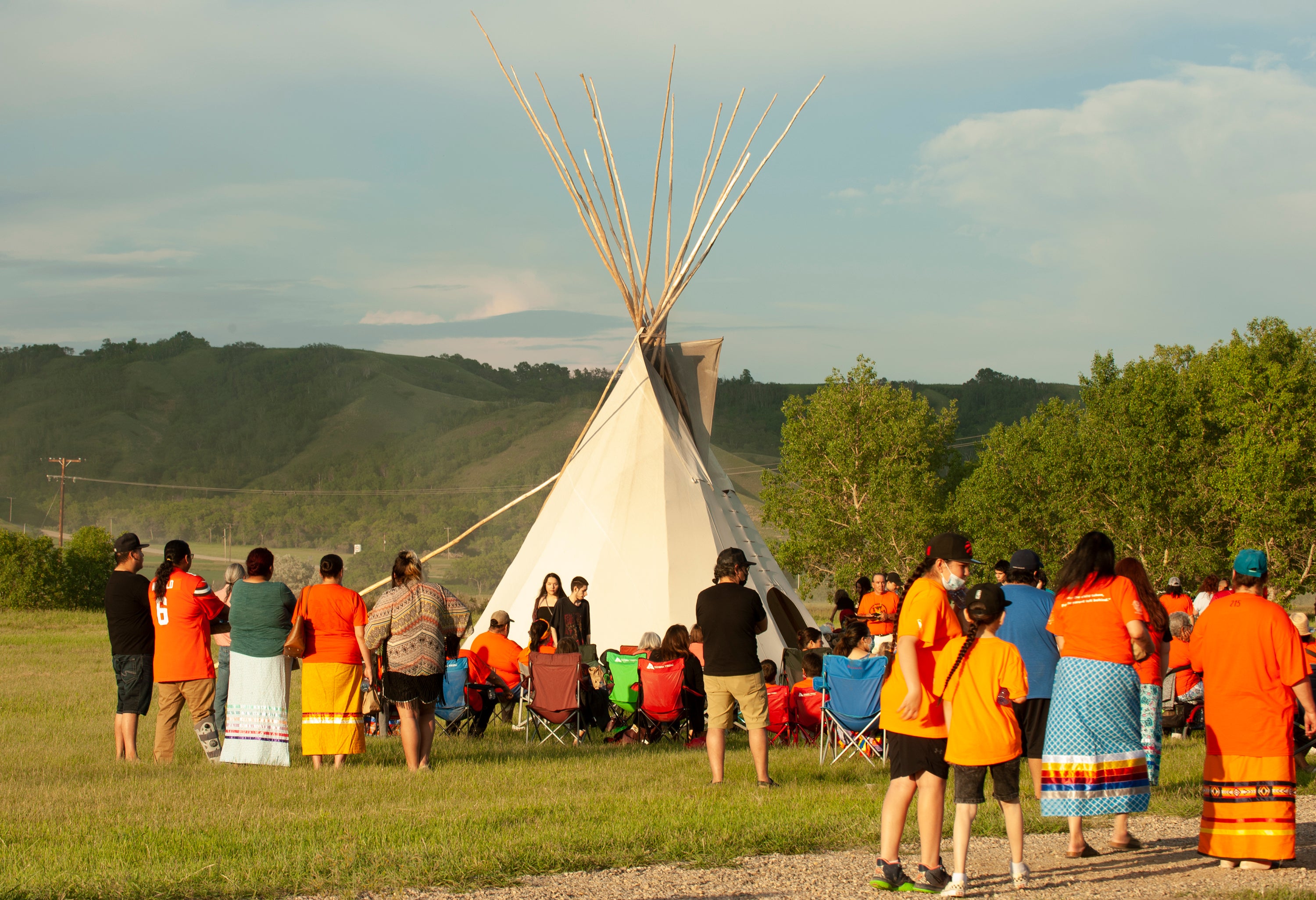Indigenous groups in Canada reports more bodies at school
A First Nations group in British Columbia says a search using ground-penetrating radar has found 182 human remains in unmarked graves at a site close to a former residential school that housed Indigenous children taken from their families

An Indigenous group in the Canadian province of British Columbia said Wednesday a search using ground-penetrating radar has found 182 human remains in unmarked graves at a site close to a former residential school that housed Indigenous children taken from their families.
It follows two other reports of similar massive findings at two other such church-run schools, one of more than 600 unmarked graves and another of 215 bodies.
The Lower Kootenay Band said in a news release it began using the technology last year to search a site near the city of Cranbrook that is close to the former St. Eugene’s Mission School, which was operated by the Roman Catholic Church from 1912 until the early 1970s. It said the search found the remains in unmarked graves, some about 3 feet (a meter) deep.
The release said it’s believed the remains are those of people from the bands of the Ktunaxa nation, which includes the Lower Kootenay Band, aqam and other neighboring First Nation communities.
The Lower Kootenay band says it is in the early stages of receiving information from the reports on what has been found, and it is asking for the public to respect its privacy.
Last week, Chief Cadmus Delorme of the Cowessess First Nation said ground-penetrating radar had registered 751 ’’hits,″ indicating at least 600 bodies were buried at the Marieval Indian Residential School, which operated from 1899 to 1997 where the Cowessess First Nation is now located. The gravesite is believed to hold the bodies of children and adults, and even people from outside the community who attended church there.
A few weeks before that, what are believed to be the remains of 215 children were found at another former residential school in Kamloops, B.C.
The Canadian Conference of Catholic Bishops said Pope Francis has agreed to meet in December with Indigenous survivors of Canada’s notorious residential schools to apologize for the Catholic Church’s role in the abuse and deaths.
Francis had invited the delegations to the Vatican and would meet separately with three groups — First Nations, Metis and Inuit — during their Dec. 17-20 visit. The pope will then preside over a final audience with all three groups Dec. 20, the conference said in a statement Tuesday.
The Vatican didn’t confirm the visit Wednesday, but the Holy See’s in-house news portal reported on the bishops’ statement. The Canadian bishops said the trip was contingent on the pandemic and that the delegations would include survivors of the residential schools, Indigenous elders and youths, as well as Indigenous leaders and Canadian bishops.
From the 19th century until the 1970s, more than 150,000 Indigenous children were forced to attend state-funded Christian boarding schools in an effort to assimilate them into Canadian society. Thousands of children died there of disease and other causes, with many never returned to their families.
Nearly three-quarters of the 130 residential schools were run by Roman Catholic missionary congregations, with others operated by the Presbyterian, Anglican and the United Church of Canada which today is the largest Protestant denomination in the country.
The government formally apologized for the policy and abuses in 2008. In addition, the Presbyterian, Anglican and United churches have apologized for their roles in the abuse.
A papal apology was one of 94 recommendations from Canada’s Truth and Reconciliation Commission, but the Canadian bishops conference said in 2018 that the pope could not personally apologize for the residential schools.
Former Pope Benedict XVI met with some former students and victims in 2009 and told them of his “personal anguish” over their suffering.
After last month’s discovery, Pope Francis expressed his pain and pressed religious and political authorities to shed light on “this sad affair,” but didn’t offer an apology.
Bookmark popover
Removed from bookmarks